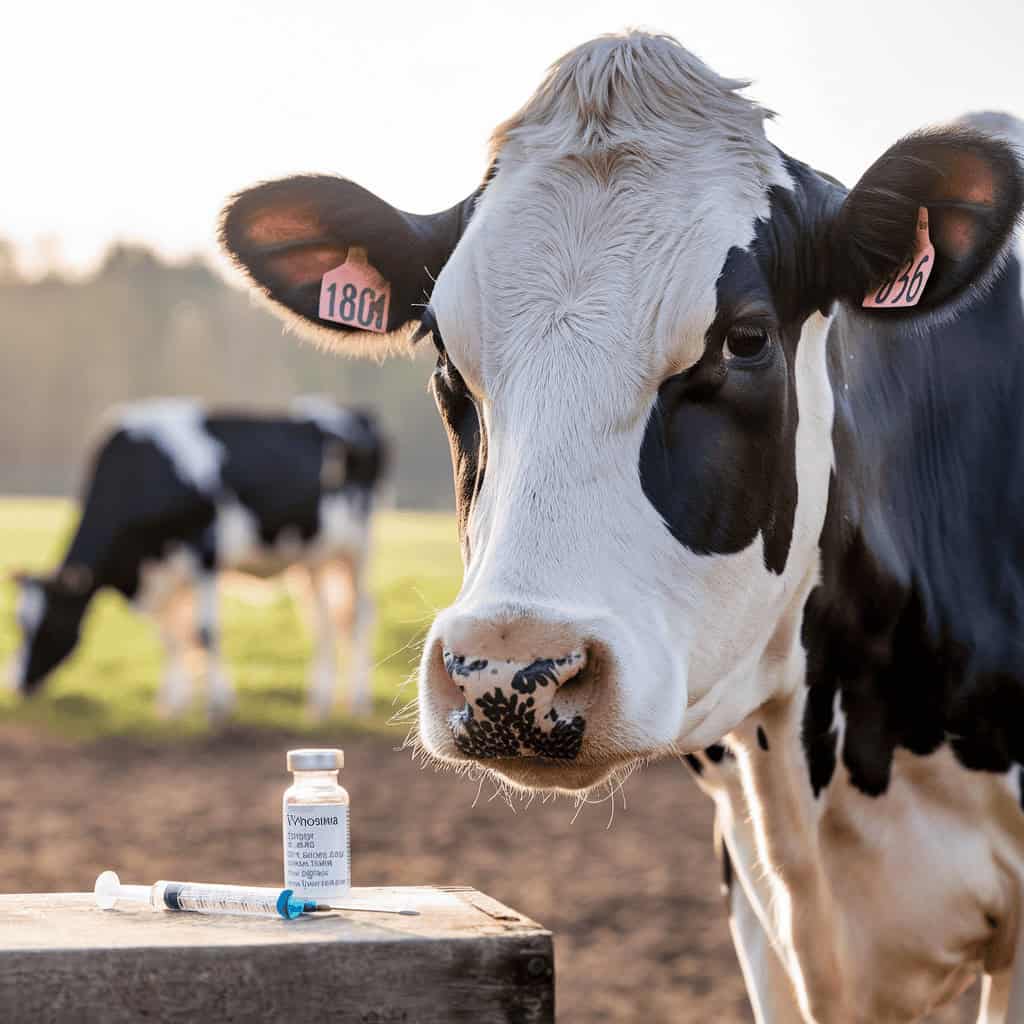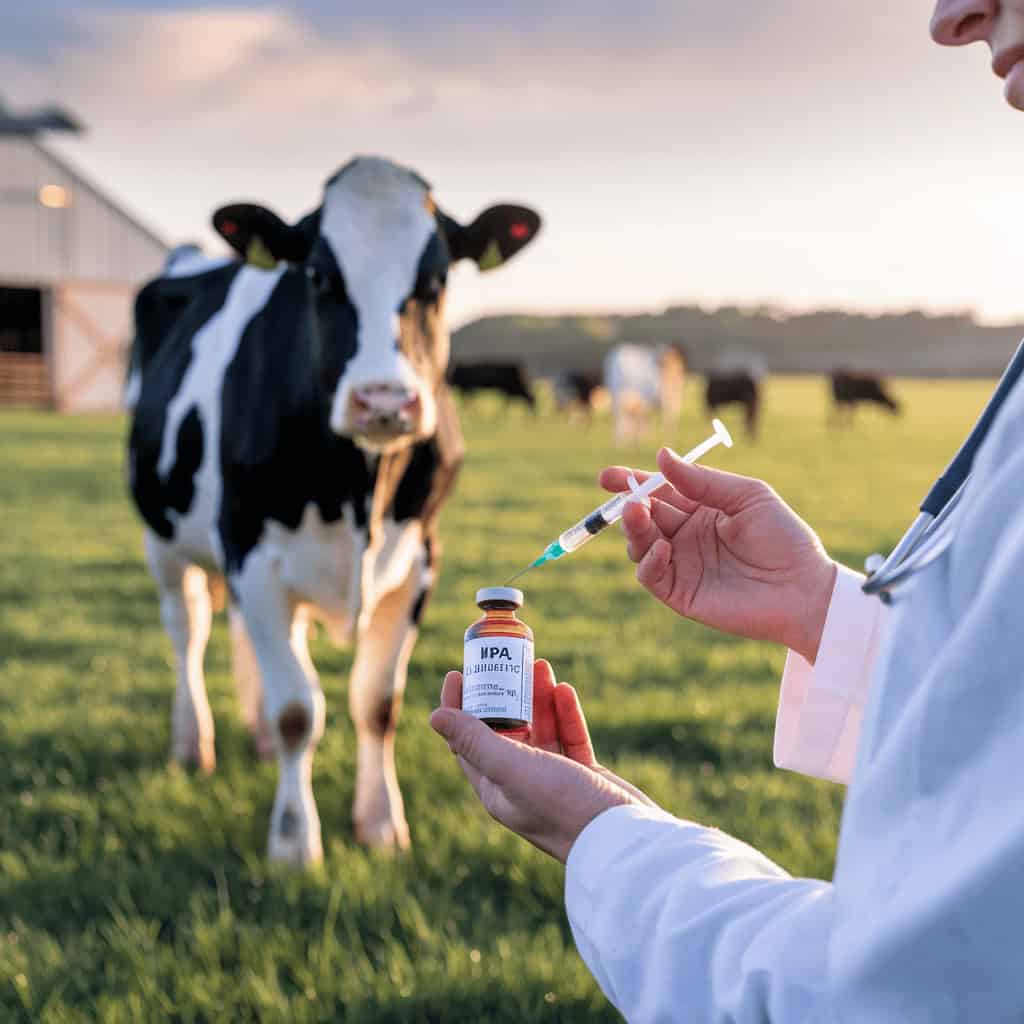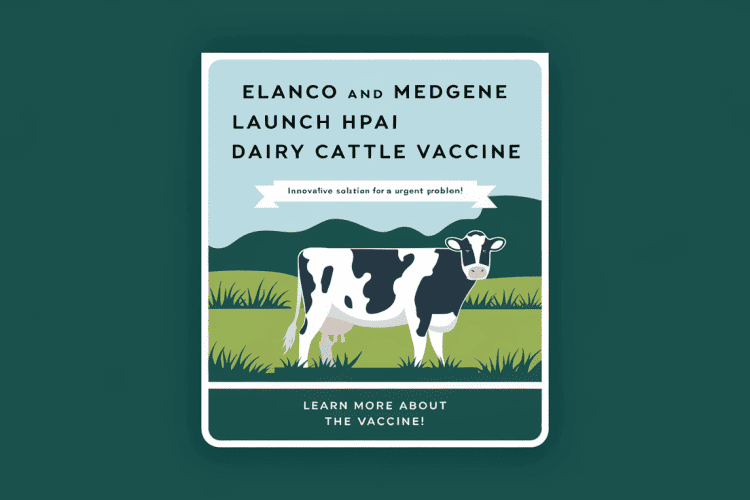Elanco Animal Health and Medgene’s recent partnership represents a significant breakthrough in the fight against highly pathogenic avian influenza (HPAI) in dairy cattle. Announced on February 25, 2025, this collaboration aims to commercialize an HPAI vaccine specifically for dairy cattle, addressing an outbreak that has affected nearly 1,000 U.S. dairy herds since March 2024. The vaccine, now in the final stages of review for conditional USDA approval, leverages Medgene’s established platform technology and manufacturing capabilities to provide a much-needed solution for the dairy industry. This strategic alliance comes at a critical time when dairy producers have lacked effective tools to combat HPAI, unlike their counterparts in the poultry industry.

Battling a Growing Threat to America’s Dairy Farms
The HPAI outbreak has emerged as a serious challenge for the U.S. dairy industry, disrupting normal operations and threatening both animal and human health. Since March 2024, the disease has spread to nearly 1,000 dairy herds across the country, creating a ripple effect throughout the agricultural sector. This unprecedented spread has caught many dairy producers unprepared, as they’ve historically not needed to contend with avian influenza in their cattle.
“Elanco is pleased to partner with Medgene to bring customers options to fight this devastating disease,” said Jeff Simmons, President and CEO of Elanco. The Indiana-based animal health company has recognized the urgency of the situation and acted quickly to address it. Their collaboration with South Dakota-headquartered Medgene combines industry-leading expertise from both organizations.
The partnership addresses a critical gap in protection for dairy cattle against HPAI, particularly the H5N1 strain that has shown unusual cross-species transmission capabilities. Unlike the poultry industry, which has developed protocols for managing avian influenza outbreaks, dairy farmers have found themselves without specific tools to fight this new threat. This vaccine represents the first dedicated solution for the dairy sector in this crisis.
Mark Luecke, CEO of Medgene, emphasized the importance of this breakthrough: “With our USDA-licensed platform technology and existing vaccine manufacturing capabilities, we’re thrilled to partner with Elanco to bring this much-needed solution to U.S. dairies.” This collaboration highlights how scientific innovations in dairy can address emerging challenges in the industry.

Economic Fallout and Public Health Concerns
The economic impact of the HPAI outbreak on the dairy industry has been substantial. Affected farms have experienced reduced milk output, increased veterinary costs, and in some cases, complete herd losses. These disruptions have rippled through the supply chain, affecting pricing and availability of dairy products for consumers nationwide.
“As egg prices soar and milk production wanes in infected dairies, the need for new solutions to curb disease spread is evident,” noted Simmons. Beyond dairy, the outbreak has affected adjacent agricultural sectors, contributing to rising egg prices and creating uncertainty in markets that depend on stable dairy production. The situation resembles other challenges in food preservation sciences that require innovative solutions.
Public health officials have also raised concerns about the zoonotic potential of HPAI. The unusual cross-species transmission from birds to cattle has heightened awareness about possible human infection risks. While human cases remain rare, the containment of HPAI in dairy cattle represents an important step in preventing further mutation and spread of the virus that could potentially increase human transmission risk.
The vaccine aims to become part of routine vaccination protocols for the U.S. dairy industry, similar to other preventative measures already in place for various cattle diseases. This approach would help create herd immunity, reducing the reservoir of infection and limiting future outbreak potential. Dairy producers have expressed enthusiasm for a solution that could help return stability to their operations after months of uncertainty.
Cutting-Edge Technology Behind the Vaccine
Medgene’s platform technology has proven instrumental in the rapid development of the HPAI vaccine. Previously approved by the USDA for other applications, this technology has allowed for the accelerated creation of a targeted solution for the H5N1 strain affecting dairy cattle. The platform’s flexibility enables scientists to quickly adapt to emerging disease threats with customized vaccines.
“Medgene has an established reputation of supporting animal owners and their veterinarians with our USDA-licensed platform technology and bioinformatics software to design transformational vaccines,” explained Luecke. This technological approach has shortened development timelines significantly, bringing a solution to market much faster than traditional vaccine development processes would allow.
The vaccine meets all USDA platform technology guidelines and is currently in the final review stages for a conditional license. This process has been expedited due to the ongoing nature of the outbreak and the urgent need for intervention tools. The conditional approval pathway allows for deployment of the vaccine while final data collection continues, balancing immediate needs with regulatory rigor.
The technological advancement represented by this vaccine parallels innovations seen in other food sectors, where alternative ingredients and methods are changing production approaches. The bioinformatics software used to design the vaccine analyzes viral proteins and identifies ideal targets for immune response, creating a precise tool rather than a blunt-force approach to disease control.
Market Stabilization and Industry Benefits
The introduction of this vaccine is expected to bring significant market stability to the dairy industry. By reducing infection rates and limiting the impact of HPAI outbreaks, dairy producers can maintain more consistent milk production levels and avoid the costly interventions currently required to manage infected herds. This stability benefits not only farmers but also processors, retailers, and ultimately consumers.
Financial benefits for dairy operations include reduced veterinary costs, fewer lost production days, and decreased mortality in herds. These improvements directly impact the bottom line for dairy producers who have been struggling with the additional costs and reduced income associated with HPAI infections. The economic case for vaccination becomes clear when compared to the ongoing costs of managing infected herds.
Jeff Simmons noted, “This partnership further strengthens our diverse dairy portfolio and advances our One Health platform of animal health solutions.” For Elanco, the collaboration represents an expansion of their dairy-focused products while aligning with their broader health initiatives that recognize the interconnection between animal health, human health, and environmental health. This approach to sustainability in food systems mirrors trends across the agricultural sector.
The food safety improvements resulting from better HPAI control also benefit the entire supply chain. Reduced disease prevalence means less risk of contamination and fewer concerns about products from affected areas. This aspect is particularly important given the premium consumers place on safe, responsibly produced dairy products in today’s market.

A Forward-Looking Partnership for Agricultural Resilience
The Elanco-Medgene partnership represents more than just a response to the current crisis; it establishes a model for future collaboration between animal health companies with complementary strengths. By combining Elanco’s market reach and industry knowledge with Medgene’s technological expertise, the partnership creates synergies that benefit the entire agricultural sector.
“With our critically important H5N1 vaccine for dairy cattle in the final stages of approval, we’re excited to partner with Elanco to quickly bring this much-needed solution to U.S. dairies,” said Mark Luecke. This sentiment reflects the shared mission of both companies to support agricultural producers with practical, effective tools for disease management. The companies are already discussing how their collaborative approach might address other emerging animal health challenges.
The partnership also signals a shift in how the industry approaches cross-species diseases, recognizing that solutions must bridge traditional divisions between livestock types. This integrated approach aligns with broader food industry trends that emphasize system-wide thinking and cross-sector collaboration. As climate change and globalization increase the risk of novel disease outbreaks, such partnerships may become increasingly important.
Looking forward, the vaccine is expected to receive its conditional USDA approval soon, making it available to dairy producers across the country. The companies have already established distribution networks and educational materials to support rapid adoption once approval is granted. This preparation ensures that dairy farmers will have immediate access to this important tool, helping the industry move toward recovery from the current HPAI crisis and build resilience against future challenges.

